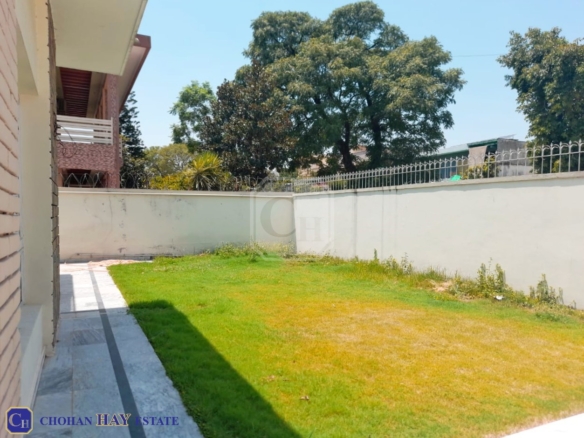beatrisvillega
Property Types
- 67% House
- 20% Farm House
- 8% Office
- 4% Other
Property Status
- 90% For Sale
- 10% For Rent
Property Cities
- 100% Islamabad
About beatrisvillega
Private Plane Flights: The Rise of Luxury Journey within The Skies
Prior to now decade, private plane flights have soared in reputation, reworking the way wealthy people and business leaders journey. As soon as considered a luxury reserved for the elite, private aviation has become extra accessible and appealing, offering a singular mix of consolation, convenience, and privateness that commercial airways wrestle to match.
The global private aviation market has experienced robust progress, with estimates suggesting that it’ll attain a price of over $forty billion by 2025. Factors contributing to this surge embody a rise in excessive-internet-worth individuals, the rise of the business jet sector, and a growing demand for personalised travel experiences. Because the world becomes extra interconnected, the need for efficient and versatile journey options has never been higher.
One of the most important drivers behind the rise of private flights is the increasing variety of billionaires and millionaires worldwide. According to the 2021 Wealth Report by Knight Frank, the number of ultra-excessive-net-value individuals (those with property exceeding $30 million) has increased by 24% prior to now five years. This burgeoning class of affluent travelers is in search of ways to optimize their time and travel experiences, and private aviation offers a perfect answer.
Private planes provide a level of flexibility that business airlines can’t. Passengers can choose their departure instances, routes, and even the airports they fly into, bypassing the crowded terminals and long security lines sometimes associated with business flights. For business executives, this implies with the ability to attend multiple conferences in numerous cities within a single day, maximizing productiveness and efficiency.
Moreover, private aviation companies have tailored to meet the wants of their shoppers, offering a range of services that enhance the flying expertise. Charter services, fractional possession, and jet cards have all gained traction, allowing travelers to pick out choices that greatest go well with their travel patterns and budgets. Charter providers, particularly, have develop into increasingly common, enabling individuals to book flights on-demand without the lengthy-time period dedication of proudly owning an aircraft.
The COVID-19 pandemic has also performed a pivotal position in reshaping the private aviation panorama. As health and safety considerations grew, many travelers turned to private flights as a safer various to commercial airlines. The flexibility to keep away from crowded airports and cut back publicity to potential health dangers made private aviation a lovely possibility through the pandemic. Reports point out that private jet travel elevated by 40% in 2021 in comparison with pre-pandemic ranges, as travelers sought to regain a sense of normalcy whereas prioritizing their safety.
In response to the elevated demand, private aviation companies have expanded their fleets and providers. Main operators reminiscent of NetJets, Flexjet, and VistaJet have reported significant increases in flight hours and new customer acquisitions. Additionally, many corporations have carried out enhanced security protocols, together with rigorous cleansing procedures and well being screenings, to make sure passenger confidence.
The environmental affect of private aviation has come below scrutiny as well, leading to a rising emphasis on sustainability within the business. Lately, several corporations have begun investing in additional fuel-efficient aircraft and exploring various fuels to reduce their carbon footprint. Using sustainable aviation gasoline (SAF) has gained traction, as it may well considerably decrease greenhouse fuel emissions in comparison with traditional jet gasoline. Furthermore, some operators are providing carbon offset packages, permitting passengers to contribute to environmental initiatives that counterbalance their travel emissions.
Regardless of the advantages, the rise of private aviation has sparked debates about inequality and the environmental implications of luxurious journey. Critics argue that the increasing number of private flights contributes to social disparities, because the wealthy continue to enjoy unique travel experiences whereas the majority depend on industrial airways. Additionally, the environmental impression of private jets, which emit significantly extra carbon per passenger in comparison with business flights, raises issues in regards to the sustainability of the industry.
To deal with these points, trade leaders are advocating for higher transparency and accountability. Initiatives aimed toward selling sustainable practices and responsible journey are gaining momentum, with many corporations committing to reducing their total environmental affect. Moreover, there is a rising motion to encourage private aviation customers to think about the broader implications of their journey selections, fostering a sense of accountability among affluent travelers.
Because the market for private plane flights continues to develop, innovations in know-how are also shaping the way forward for the business. The appearance of digital platforms and apps has made it simpler for travelers to guide private flights, compare prices, and entry real-time information about available aircraft. These developments are democratizing access to private aviation, permitting a wider audience to expertise the benefits of flying privately, even if only often.
Moreover, advancements in aircraft expertise are resulting in the event of latest, extra efficient jets that promise to revolutionize the industry. Electric and hybrid aircraft are on the horizon, with a number of companies working to convey these improvements to market. As these technologies mature, they hold the potential to reshape the panorama of private aviation, making it more sustainable and accessible to a broader vary of travelers.
In conclusion, private plane flights have develop into a significant aspect of trendy journey, appealing to a rising demographic of affluent individuals seeking convenience, comfort, and suppleness. Whereas the industry faces challenges related to social inequality and environmental sustainability, there is a concerted effort amongst operators to handle these concerns and promote responsible journey. As know-how continues to evolve and the demand for private aviation rises, the way forward for luxury journey in the skies looks promising, with new alternatives for innovation and growth on the horizon. The allure of private flights is prone to endure, reshaping the way we expect about air journey for years to return.
Brand New Furnished Home is for SALE
- PKR 35 crore
CDA Transfer Three Side Corner Old House is for SALE
- PKR 25 crore
444 SQYD Renovated House is for SALE
- PKR 23 crore
Renovated House is for SALE in F-6
- PKR 23 crore
400 SQYD Livable House is for SALE
- PKR 21.5 crore
400 SQYD Livable House is for SALE
- PKR 21.5 crore
Livable House is for SALE in F-6
- PKR 21.5 crore










